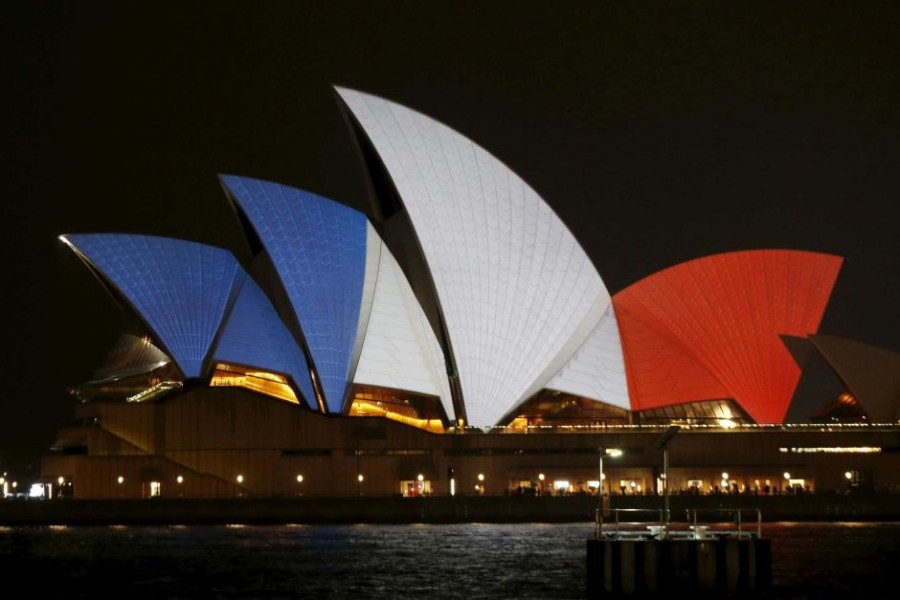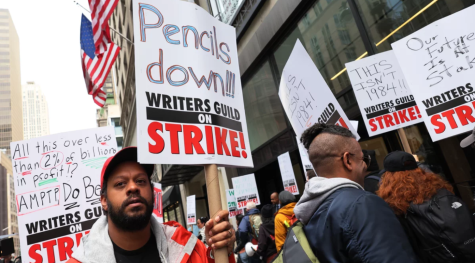Lessons We Can Learn From the Paris Attacks
The world was in a state of shock on November 13, the night of the seven coordinated attacks that resulted in the deaths of at least 130 people in Paris.
Countries around the world have expressed solidarity with the victims of the attacks by adorning their most famous landmarks with France’s national colors. The London Eye Ferris Wheel in London, England; the Christ the Redeemer statue in Rio de Jeneiro, Brazil; the Sydney Opera House in Sydney, Australia and many other nationally acclaimed attractions were ornamented with red, blue, and white to honor the victims and to express support.
Social media sites used their connections to countries across the globe to back the movement. Facebook and Snapchat both offered blue, white, and red filters that could be superimposed onto photos in order for users to show their support. Twitter’s trending hashtag #pray4paris quickly gained traction in the hours following the brutal attack, gaining attention from celebrities and important political figures.
The encouragement for the public to support the victims of the November 14 attack unified people from numerous areas of the world and resulted in a widespread movement of support for France during their time of need.
But in the weeks since the attacks, people have begun to shift from expressing solidarity with the victims to expressing their hatred for Muslims by attacking all followers of Islam, blaming all Muslims for the Paris deaths. This reaction to the November 13 attacks has exposed the hate for an entire demographic, revealing the following lessons that should be learned regarding Muslim terrorism:
- Not all terrorists are Muslim
And not all Muslims are terrorists. In order for an attack to be labeled “religiously-motivated,” the terrorists must claim that their religious beliefs influenced their violent acts. Less than one percent of all terrorist attacks in Europe between 2011 and 2014 were religiously-motivated.
But even then, Muslims who take part in acts of terror are going against the very beliefs that they claim has supported their cruelty. The Qur’an, the Islamic holy book, clearly forbids murder: 5:53 of the Qur’an says, “… whoso kills a soul, unless it be for murder or for wreaking corruption in the land, it shall be as if he had killed all mankind…”
Muslim extremists who cite the Qur’an as their fuel for taking away innocent lives are actually referring to a righteous book that speaks strongly of peace and respect. The Qur’an says, “But if the enemies incline towards peace, do you also incline towards peace. And trust in God! For He is the one who hears and knows all things” (8:61).
These passages plainly forbid what Muslim extremists claim that the Qur’an condones.
- We should not let fear override our compassion towards Muslim-Americans
On November 19, 2015, Republican presidential candidate Donald Trump told Yahoo News that he would consider developing a system to track Muslim-Americans, saying, “We’re going to have to look at a lot of things very closely.”
Later, after being asked by an NBC reporter how forcing Muslims to register in a governmental system would be different from forcing Jews to register in Nazi Germany, Trump replied: “You tell me.”
Many Muslim-American groups were disturbed by Trump’s comments, which have gained more traction among his supporters following the Paris attacks. Many Americans are shifting closer to Trump’s side, joining in his belief that all Muslims should either be kept under strict watch or kept out of the country entirely.
But what these Americans have not considered is the loss of American values that will result in refusing these Muslims— the large majority of whom do not have any affiliation with ISIS or any other Muslim-extremist group— entry into the country. The United States would be refusing people their right to immigrate, to seek refuge from the war in their own countries, and denying their opportunity for a better future.
What we can do is develop more advanced ways of dealing with possible terrorist threats without removing the rights of Muslim-Americans to privacy and freedom. Similar to the attacks on 9/11 when Americans unified to support the families of the victims, we must not only show this same support to the victims of the Paris attacks, but also to the Muslims who are being victimized for the actions of a few extremists.
Sources:
http://www.theguardian.com/us-news/2015/nov/20/muslim-americans-outrage-donald-trump-ben-carson
http://www.juancole.com/2013/04/islamic-forbids-terrorism.html
http://www.vocativ.com/news/251821/muslims-terrorist-attacks/
http://www.cnn.com/2015/11/20/opinions/obeidallah-trump-anti-muslim/
















